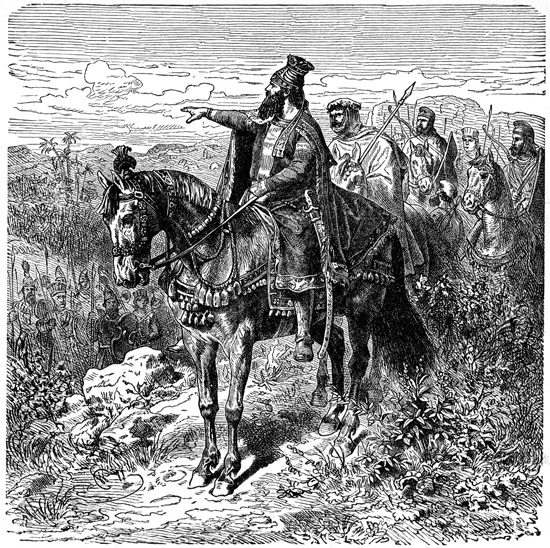This is not going to be about Akkadia (sorry about that), but about Persia.
We have all grown up with propaganda (definition: information, ideas, or rumors deliberately spread widely to help or harm a person, group, movement, institution, nation,etc.)
As it turns out, humans love to use propaganda. Persia was no exception.
The Persian king Cyprus the Great created one of the earliest examples of written propaganda. The Cyrus Cylinder was a clay cylinder with writing all over it. These Cylinders would be dropped in public places like fountains or public squares, somewhere where they'd be seen by many people.
Upon the cylinder would be written things like "the old king has been killed by the will of the Gods and is therefore not worthy of ruling this mighty nation, however, Cyrus the magnificent has been blessed of the Gods and will lead the country into a new and prosperous way of life" (not exact translation) Though I basically made that up, the general theme was not. It really did say who the gods approved of.
This would not be all. Descriptions of how the new king was repairing the cities left in disarray by earlier kings would be written (wouldn't the conquering nation have caused much of the damage?) to show how benevolent the new leaders were and how worthy of love and devotion they were.
The British Museum (who own many Cylinders and have taken up the task of translating them) say that two cuneiform tablets have been found to be inscribed with the same text as has been found on Cyrus Cylinders which "show that the text of the cylinder was probably a proclamation that was widely distributed across the Persian Empire"
I would like to know of more propaganda from different civilizations of early time periods. Please comment! Especially if there's a good website with some on.


This is such an interesting topic! The Roman Republic had a lot to do with propaganda. In the Gallic Wars, Julius Caesar told his native Roman readers of the barbarian like people in the Germanic tribes. He exaggerated his accounts with the tribes and his accounts were very colorful. If you're looking for more on this topic look here : http://www.bbc.co.uk/history/ancient/romans/romanpropaganda_article_01.shtml
ReplyDeleteThat's so cool! I had always thought that propaganda was a more modern system. I searched online to see if Egypt had any examples of propaganda and here's what I found: http://www.ancientegyptonline.co.uk/hatshepsut2.html#prop
ReplyDeletePharaohs often publicized their achievements in order to confirm their authority.
Thanks for the links! Propaganda was probably always around, but it's a lot harder when you don't have that constant reminder. Stories definitely had propaganda within them, but they weren't solid or as long lasting. Writing, on the other hand, you can spread the good word far and wide. You can even make visuals to go with it.
ReplyDeleteI think pictures are a big part of why writing can be more accessible than oral knowledge. Not everyone can read or understand a lecturer, but anyone (who can see) can understand a picture.
ReplyDeleteToo bad we're not studying art! That would be interesting, but you can see that as knowledge change so did the art. The art became more sophisticated and abstract as the types of knowledge did.
ReplyDeleteEmily, maybe you should be studying art? Certainly art is a form of communication which would fall square under the learning outcome of communicating knowledge. Art is something I'd read a blogpost about, but am not interested in researching myself. Would you?
ReplyDelete